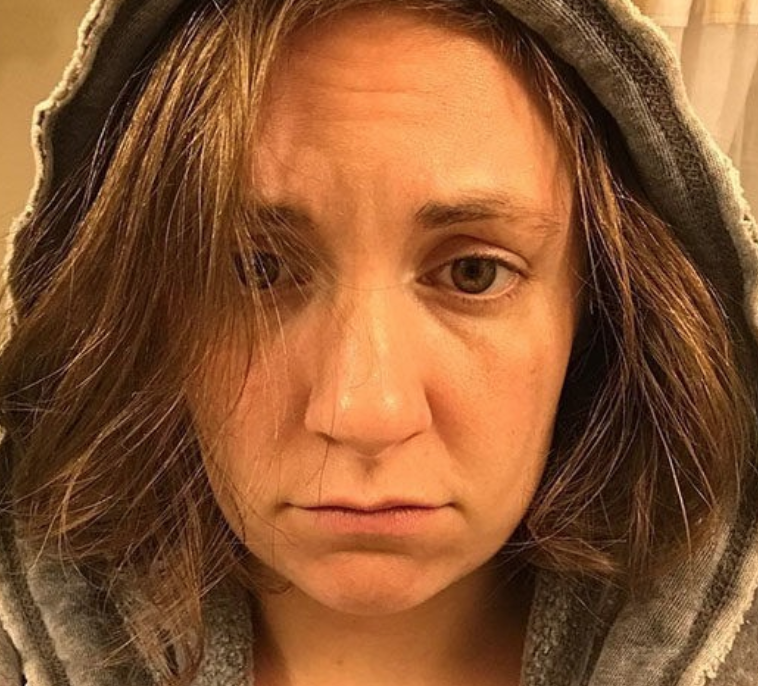Just when you thought you had heard the last of the “Lena Dunham Apologizes for [insert obvious to everyone else faux pas she made here]” for a while, the shrugged off of Jack Antonoff’s shoulders “actress”/”writer” goes and decides to dredge up an ill-advised comment she made in defense of accused sexual abuser/former Girls writer Murray Miller after Jem and the Holograms actress Aurora Perrineau came forward last fall to express her own story amid the flood of others that coalesced to spark the #MeToo movement. Dunham was, bizarrely, Team Miller, in spite of her constant claims of being some kind of “voice of a generation,” particularly in the (fast) feminism department.
For whatever reason feeling compelled to write yet another unwanted essay involving an apology (at one point simply centering a “LinkedIn piece” on her apology addiction, adding insult to injury by incorporating Madonna’s “Human Nature” lyrics into the prose, as if she’s worthy of invoking that hallowed name emblematic of never saying you’re sorry), Dunham offered Perrineau a direct mea culpa in a guest editor letter for The Hollywood Reporter‘s Women in Entertainment issue. Never one to pass up an opportunity to somehow bring everything back to herself, Dunham delved into an “emotional” exploration of her error in previously dismissing Perrineau’s claim as “sadly…one of the three percent of assault cases that are misreported every year.” This gall, further compounded by Dunham’s declaration of having “insider information” into, one supposes, the “infallibility” of Murray’s morality, is an about-face to the statements she makes in her editor’s note, blowing hot air with her faux self-deprecation, highlights of which include, “When someone I knew, someone I had loved as a brother, was accused, I did something inexcusable: I publicly spoke up in his defense. There are few acts I could ever regret more in this life. I didn’t have the ‘insider information’ I claimed but rather blind faith in a story that kept slipping and changing and revealed itself to mean nothing at all.”
Well, for one thing, if this truly is one of the acts she regrets most in her life, then she really ought to reassess. There’s her wishing she had gotten an abortion at some point in her life to better identify with women who have, being a self-appointed hall monitor, showcasing her health care privilege on social media, writing incestuous rape scenes, daring to play Valerie Solanas and generally trying to make everything somehow a part of her “feminist” “cause.” So no. Surprisingly, this inability to recognize her error in brushing off an assault victim’s trauma–and adding to it–is actually not the worst. In truth, it’s just par for Dunham’s course in a career essentially based entirely on “atonement”–even if said atonement is utterly empty as a result of Dunham getting almost masturbatory pleasure out of it.
So it is that she concludes her little missive of contrition with, “It’s painful to realize that, while I thought I was self-aware, I had actually internalized the dominant male agenda that asks us to defend it no matter what, protect it no matter what, baby it no matter what. Something in me still feels compelled to do that job: to please, to tidy up, to shopkeep. My job now is to excavate that part of myself and to create a new cavern inside me where a candle stays lit, always safely lit, and illuminates the wall behind it where these words are written: I see you, Aurora. I hear you, Aurora. I believe you, Aurora.” The real question is though: Bitch, do you see yourself? Do you hear yourself? Believe yourself when you spout your attention-whoring attempts at New Age speak?





















